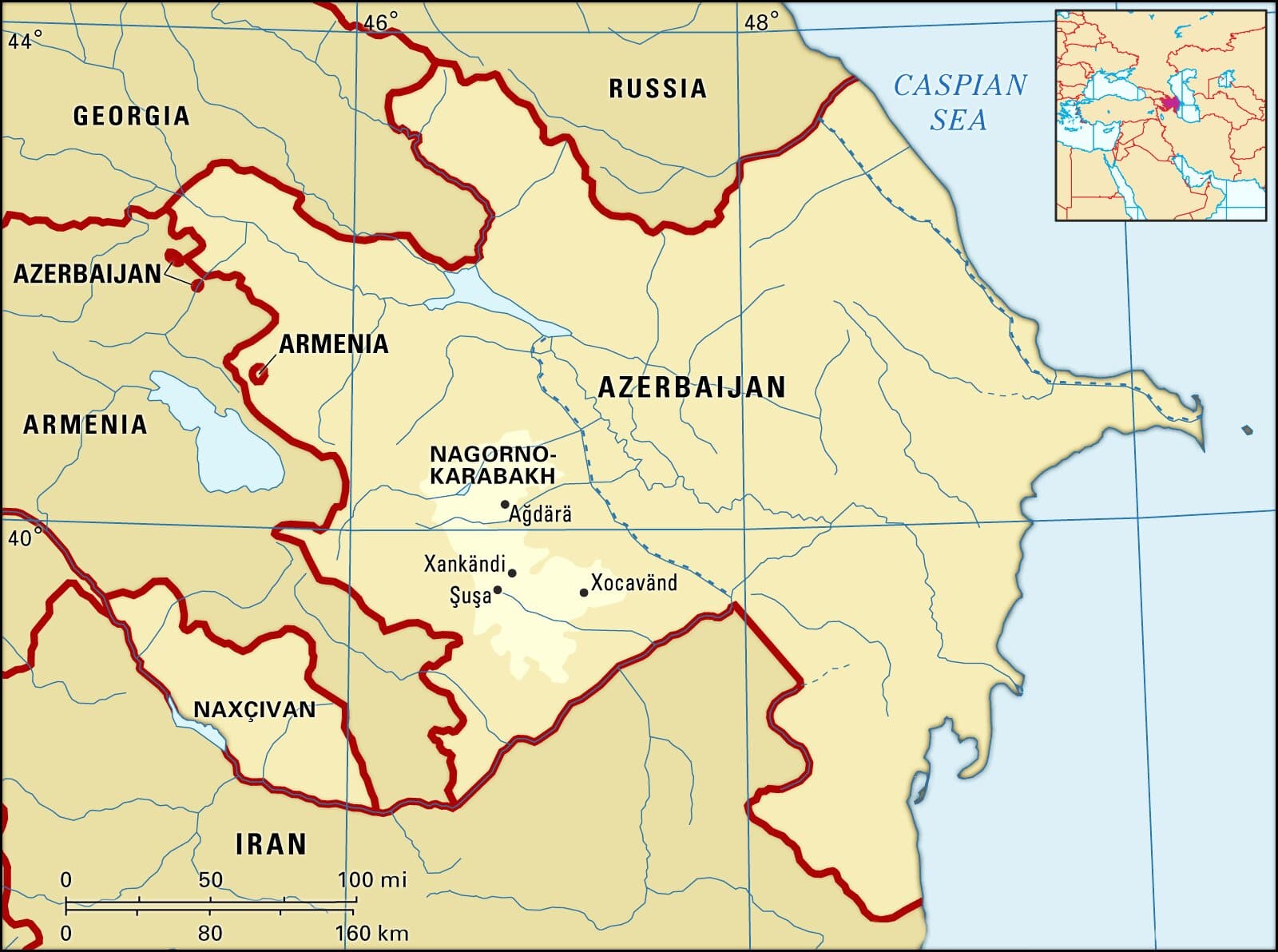International Relations
Armenia Azerbaijan Peace Deal
- 11 Nov 2020
- 5 min read
Why in News
Recently, Russia has brokered a new peace deal between Armenia and Azerbaijan. Both counties have been in a military conflict over the disputed region of Nagorno-Karabakh in the South Caucasus.
Key Points
- Nagorno-Karabakh Region:

- The region extends across western Asia and Eastern Europe.
- It has been part of Azerbaijan territory since the Soviet era and is being internationally recognised so but most of the region is controlled by Armenian separatists who have declared it a republic called the “Nagorno-Karabakh Autonomous Oblast”.
- While the Armenian government does not recognise Nagorno-Karabakh as independent, it supports the region politically and militarily.
- Conflict and Ceasefire:
- When the Soviet Union began to collapse (with the end of the Cold War) in the late 1980s, Armenia’s regional parliament voted for the region’s transfer to Armenia but the Soviet authorities turned down the demand.
- Clashes and the violence lasted till 1994, when Russia brokered a ceasefire, by which time ethnic Armenians had taken control of the region.
- In 2016, the region saw a Four-Day War before Russia mediated peace.
- The Organisation for Security and Co-operation in Europe (OSCE) Minsk Group, chaired by France, Russia and the USA, has also tried to get the two countries to reach a peace agreement for several years.
- OSCE is the world's largest security-oriented intergovernmental organisation. Its mandate includes issues such as arms control, promotion of human rights, freedom of the press, and fair elections.
- OSCE Minsk Group was created in 1992 by the Conference on Security and Cooperation in Europe (CSCE) to encourage a peaceful, negotiated resolution to the conflict between Azerbaijan and Armenia over Nagorno-Karabakh.
- In October 2020, both countries agreed to a Russia brokered ceasefire agreement, however, it also proved to be unsuccessful.
- Reason for the Conflict:
- Decades-old Ethnic tensions have a crucial role in the dispute. While the Azeris claim that the disputed region was under their control in known history, Armenians maintain that Karabakh was a part of the Armenian kingdom.
- Currently, the disputed region consists of a majority Armenian Christian population, even though it is internationally recognised as a part of Muslim-majority Azerbaijan.
- New Peace Deal:
- Both sides will now maintain positions in the areas that they currently hold, which will mean a significant gain for Azerbaijan as it has reclaimed over 15-20% of its lost territory during the recent conflict.
- All military operations are suspended and Russian peacekeepers will be deployed for a period of five years, along the line of contact in Nagorno-Karabakh and along the Lachin corridor which links the Karabakh capital, Stepanakert, to Armenia.
- Refugees and internally displaced persons will return to the region and the adjacent territories and the two sides will also exchange prisoners of wars and bodies.
- A new corridor will be opened from Nakhchivan to Azerbaijan, which will be under Russian control.
- Reactions: Armenian people are against the deal and have protested while Azerbaijan is pleased with the deal and considered it of “historic importance”.
- Russia’s Role:
- Russia has always taken a balanced position on the matter and has traditionally good relations with both countries. It supplies arms to both countries.
- Russia has a military base in Armenia and both are members of the Moscow-led Collective Security Treaty Organisation.
- The treaty envisages Russia's military support if Armenia is attacked. However, it does not include Nagorno-Karabakh or the other Azerbaijani regions around it seized by Armenian forces.
- At the same time, Russia also has strong ties to Azerbaijan, which is being openly backed by Turkey, a North Atlantic Treaty Organisation (NATO) member.




